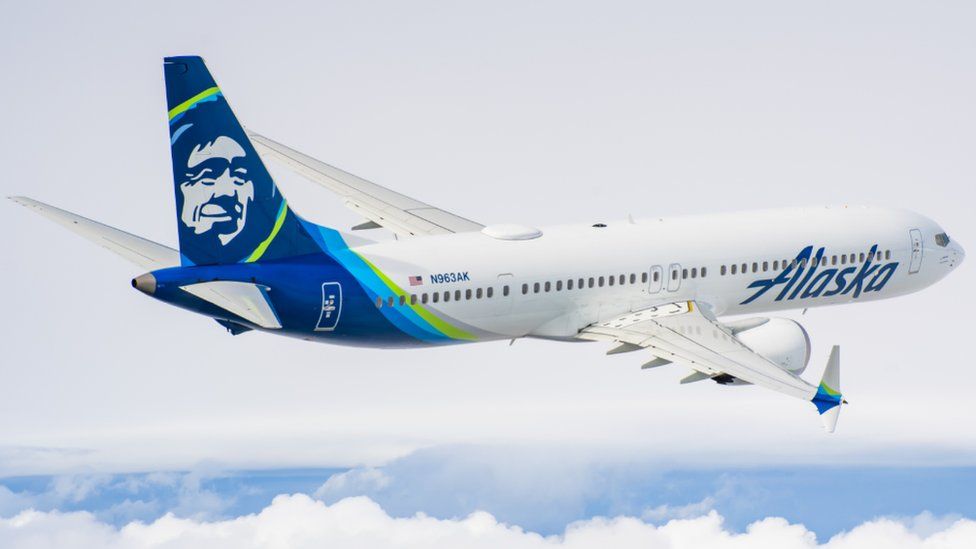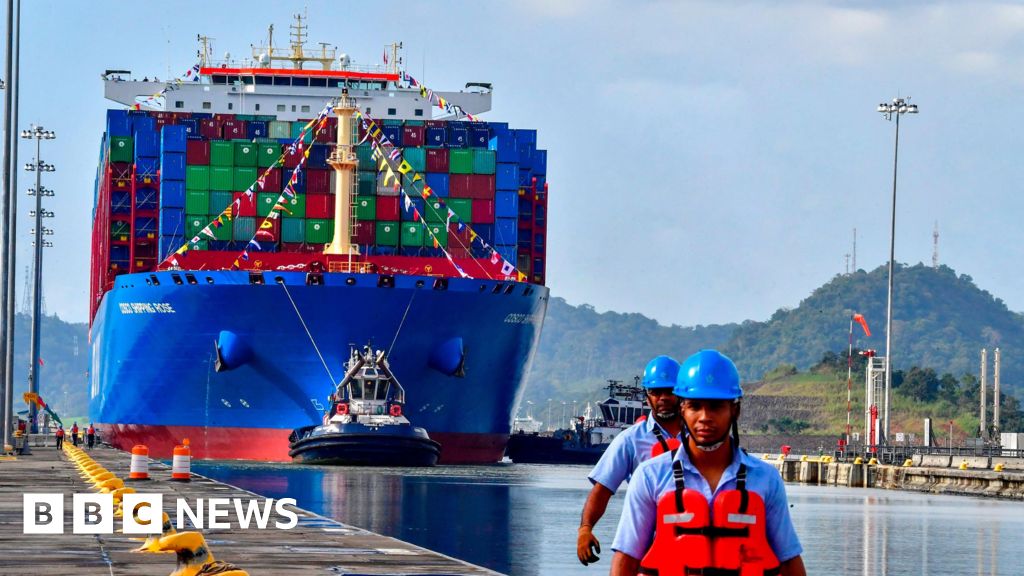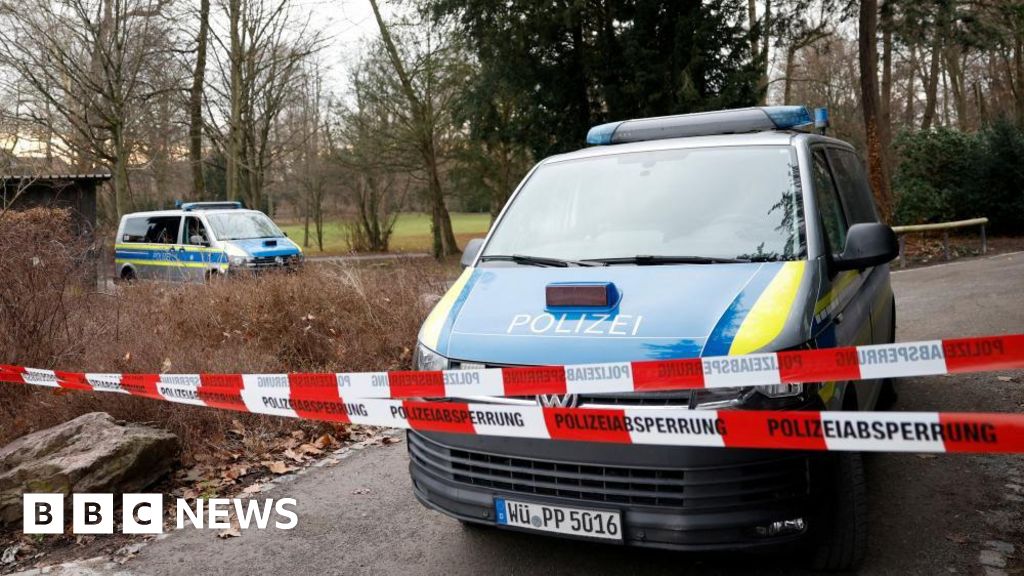ARTICLE AD BOX
 Image source, Alaska Airlines
Image source, Alaska Airlines
January's mid-air blowout involved an Alaska Airlines 737 Max 9, such as this one
By Theo Leggett
Business correspondent, BBC News
"It's as if I'm watching a troubled child" is how Captain Dennis Tajer describes flying a Boeing 737 Max.
The head of the Allied Pilots Association, the pilots union for American Airlines, insists he would never board an aircraft if it were not safe.
But he says he can no longer take the quality of the plane he's flying for granted.
"I'm at an alert status that I've never had to be in on a Boeing airplane," he says.
"Because I don't trust that they've followed the processes that have previously kept me safe on Boeing airplanes for over three decades."
Executives at the aerospace giant's shiny new headquarters in Arlington, Virginia could be forgiven for feeling like they are under siege.
Every day seems to bring more bad headlines for the company, which is coming under pressure from regulators and airlines, and has seen its reputation badly damaged.
The trouble began in January, when a disused emergency exit door blew off a brand new Boeing 737 Max shortly after take-off from Portland International Airport.
An initial report from the US National Transportation Safety Board concluded that four bolts meant to attach the door securely to the aircraft had not been fitted.
Boeing is reportedly facing a criminal investigation into the incident itself, as well as legal action from passengers aboard the plane.
Image source, Dennis Tajer
Image caption,Captain Dennis Tajer says he's "at an alert status that I've never had to be in on a Boeing airplane"
But although no-one was seriously hurt, the affair had much wider repercussions. It cast a harsh spotlight on the aerospace giant's corporate culture and attitude to safety.
Five years ago Boeing faced one of the biggest scandals in its history, after two brand new 737 Max planes were lost in almost identical accidents that cost 346 lives.
The cause was flawed flight control software, details of which it was accused of deliberately concealing from regulators.
The company, which agreed to pay $2.5bn (£1.8bn) to settle fraud charges, and admitted wrongdoing, faced widespread accusations that it had put profits ahead of passengers' lives.
It reaffirmed its commitment to safety, and in early 2020 its newly appointed chief executive Dave Calhoun promised it could "do better. Much better."
Yet the scrutiny that followed the incident in January this year has called that commitment into question.
Addressing those concerns, in January 2023 chief executive Dave Calhoun said: "We will go slow, we will not rush the system and we will take our time to do it right."
Earlier this month the US regulator, the Federal Aviation Administration, said that a six-week audit of the 737 Max production process at Boeing and its supplier Spirit Aerosystems had found "multiple instances where the companies failed to comply with manufacturing quality control requirements".
The findings came shortly after another report into Boeing's safety culture by an expert panel found a "disconnect" between senior management and regular staff, as well as signs that staff were hesitant about reporting problems for fear of retaliation.
Adam Dickson, a former senior manager at Boeing who once worked on the 737 Max programme, agrees there is a gulf between executives and workers on the factory floor.
"The culture at Boeing has been toxic to trust for over a decade now," he says.
"You can add safety steps, you can add procedures. But the fundamental issue of distrust makes those changes almost ineffective", he claims.
Meanwhile, further evidence of how production problems could endanger safety emerged this week.
The FAA warned that improperly installed wiring bundles on 737 Max planes could become damaged, leading to controls on the wings deploying unexpectedly, and making the aircraft start to roll.
If not addressed, it said, this "could result in loss of control of the airplane". Hundreds of planes already in service will have to be checked as a result.
Boeing said based on the FAA audit it was continuing "to implement immediate changes and develop a comprehensive action plan to strengthen safety and quality, and build the confidence of our customers and their passengers."
Image source, EPA
Image caption,A recent report found a "disconnect" between Boeing senior management and regular staff
But concerns about Boeing's production standards are far from new.
Whistleblower John Barnett, who was found dead last weekend, had worked at Boeing's factory in South Carolina from 2010 until his retirement in 2017.
A quality manager on the 787 Dreamliner programme, he had claimed the rush to build planes as quickly as possible in order to maximise profits had led to unsafe practices.
Among a number of allegations, he told the BBC that in some cases under-pressure workers had deliberately fitted substandard parts to planes on the production line.
Boeing denied his claims. But his untimely death, which occurred between legal hearings in a lawsuit against the company, has focused new attention on them.
The crisis at the aerospace giant is now causing problems for airlines.
Ryanair has warned that delays to new aircraft deliveries will push up prices for passengers in Europe this summer. The US carrier Southwest plans to cut its capacity this year because it can't get hold of the planes it needs.
Watch: 'Trip from hell': On board flight during mid-air blowout
Some carriers may try to obtain Airbus models to replace the lost Boeings. But a wholesale transfer of orders from the American manufacturer to the European is simply impractical.
Both have very full order books. Airbus has a backlog of more than 8,000 planes and Boeing more than 6,000.
Airlines are already having to wait longer than they would like for new aircraft. Airbus has had its own supply chain problems, leading to late deliveries.
There is a potential third player. The Chinese manufacturer Comac has developed the C919, a plane designed to compete with the 737 Max and the A320 neo.
But that programme is still in its infancy. By 2028 it will be producing only 150 aircraft a year.
In other words, the market needs Boeing to be healthy, and to overcome its current problems quickly. So can that happen?
According to Ed Pierson, executive director at the Foundation for Aviation Safety, the issues involved are complex, but fixable.
Himself a former Boeing whistleblower, he has spent years lobbying regulators to take a firm approach to the company.
"Boeing, their suppliers, airlines, and government agencies are capable of overcoming these challenges, but the first step in fixing these problems is being honest," he says
"They need to admit these problems exist and stop trying to spin the truth. The more they spin, the longer it takes to solve the problems and the greater the risk."
Boeing says that over the last several years, it has "never hesitated to slow down, to halt production, or to stop deliveries to take the time we need to get things right.".
It added that it has launched a "Speak Up" programme encouraging staff to raise issues that need to be addressed.

 10 months ago
106
10 months ago
106








 English (US) ·
English (US) ·